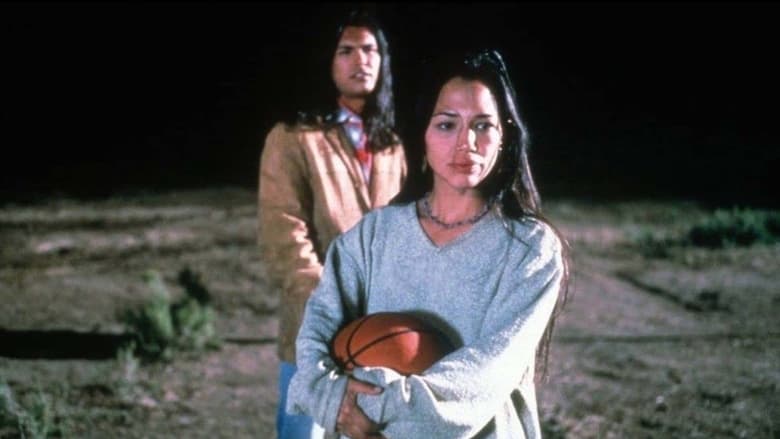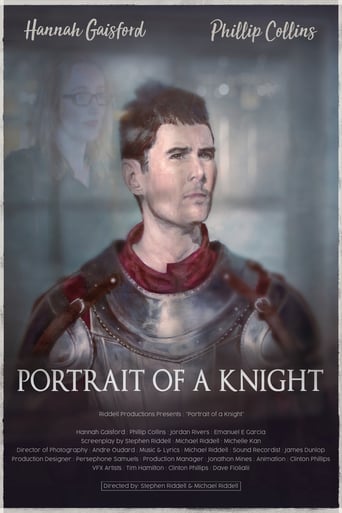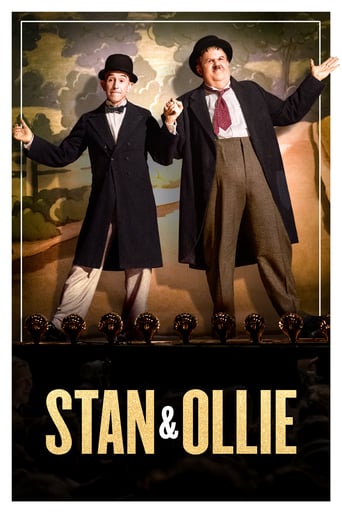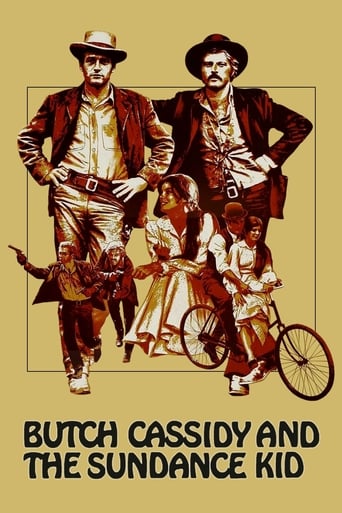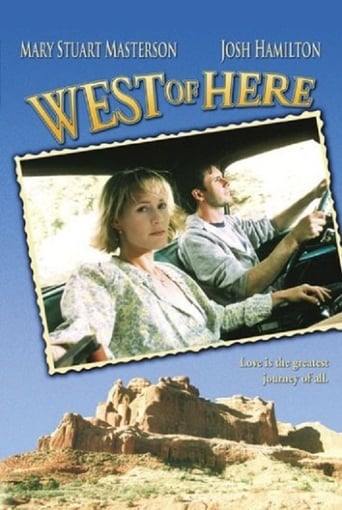Smoke Signals (1998)
Young Native American man Thomas is a nerd in his reservation, wearing oversize glasses and telling everyone stories no-one wants to hear. His parents died in a fire in 1976, and Thomas was saved by Arnold. Arnold soon left his family, and Victor hasn't seen his father for 10 years. When Victor hears Arnold has died, Thomas offers him funding for the trip to get Arnold's remains.
Watch Trailer
Free Trial Channels
Cast


Similar titles
Reviews
A Disappointing Continuation
Fanciful, disturbing, and wildly original, it announces the arrival of a fresh, bold voice in American cinema.
I didn’t really have many expectations going into the movie (good or bad), but I actually really enjoyed it. I really liked the characters and the banter between them.
Great example of an old-fashioned, pure-at-heart escapist event movie that doesn't pretend to be anything that it's not and has boat loads of fun being its own ludicrous self.
I don't want get too political during this review, but I believe that this movie is not good as a result of a compounded number of societal failures. The fact that this was acclaimed as the first movie to have Native American characters portrayed by Native American actors and a Native American writer and director is unfortunate because in an objective sense, it's not a well crafted or well executed film. This is not because Native Americans are naturally less talented in artistic pursuits, but they just aren't given good opportunities to become artists or actors. Now, much of the blame for that can be attributed to the settlers and pioneers that took America for their own in centuries past, but, in the words of V, "if you are looking for the guilty party, you need only look in the mirror."Sherman Alexie's writing was rather disappointing considering how much I've loved his books. The Absolutely True Diary of a Part-Time Indian is one of my favorite books because of it's sarcastic wit and emotional resonance, but unfortunately Alexie doesn't show the same proficiency as a screenwriter that he does as a novelist. There is still some of the same tone from his novels here, like in the song about John Wayne's teeth. Despite this disappointment, he has written a story that is deep and bittersweet at its core. Even though Victor and Thomas and Arnold are a little annoying, they have human conflicts that really aren't resolved at the end. In many coming of age stories like this in which the hero finds his identity, he or she is clearly a better person by the end of the movie. This is not the case in Smoke Signals. I didn't get the sense that Victor had experienced any kind of self-discovery or surge of identity; he just transitioned into a different stage of conflict over his feelings about his late father. Similarly, Arnold did not seem to have died in peace. He never redeems himself for the torment that he put Victor and himself through. This is not to say that the story should have continued, it's just that nothing was really resolved by the end of the story. This is unconventional, but I think it is much truer to life than a traditional happy ending.If you didn't like this movie, I would recommend that you read one or two of Sherman Alexie's books, because I think that they will give you a greater appreciation for what this film stands for. It won't make you like it any more, but it might make you more forgiving of the movie's technical shortcomings. Overall Rating: 6.4/10.
It is a road movie, a comedy, and Indian film all in one. Surprising were the great performances of the actors, especially Adam Beach. Although characterized as an Indian Film, it is universal in theme, execution and message. The story is well developed, with an interesting twist at the end. Also, it is one of the funniest films ever. Through humor it challenges the way people view Native Americans, in real life and on screen. As an important feature of the movie, worthy to be mentioned, is the cool soundtrack. Sherman Alexie himself, wrote some of the song lyrics (!). It is a gem of a movie and recommended for everyone, who wants to have culture mixed with entertainment and pure art. A 10/10
The material here has real potential, but the execution leaves something to be desired. It is easy to point out some amateurish flaws in the production -- the obvious wigs, some spotty acting -- but the problems run deeper than these superficial imperfections. At times the movie is compelling, and it points to some profound issues. But too often, it pulls its punches, opting for a feel-good approach reminiscent of made-for TV movies. It covers the brutality, pain, and loss in its subject matter with a gauze of sentimentality and empty humanism. The inevitable redemption that resolves the troubled, troubling story feels too easy, merely the result of the genre's formula. It doesn't feel true to life. Notably, the director chooses to try to pull the viewer's heart strings at moments when the script seems instead to be calling attention to hard realities. Thomas's boring tales are treated as though they are genuinely entertaining, when in fact they seem to reflect the oppressive tedium of reservation life, the need to escape its futility, and to shroud the past in fantasy. Similarly, the characters' fondness for flatbread is portrayed as touching, when it seems more a comment on their grinding poverty -- baked bread is so cheap that to forgo it for homemade bespeaks a perilous level of want. On the other hand, the characters' sense of dispossession and victimhood is overplayed. The script seems to point to a somewhat more problematic sense of Indian identity, matching the overwhelming sense of having been wronged with a concomitant guilty doubt -- something like, "Did my ancestors blow it like some of my other relatives? Why weren't they strong enough to fight the white man off? Why couldn't they provide us a better life than this?" This would seem to tie in with the central theme of the movie, the difficulty of grappling with the absurd, of grappling with the inexplicable, senseless past; the way in which history weighs like a nightmare on the minds of the living; the way history is a nightmare from which we're trying to wake up. But the movie's impulsive softness pushes this hard element to the periphery. Of course it must be possible to forgive one's father for years of abuse and neglect, and it must be possible to make peace with a culture and people that once tried to eliminate yours, and that still treats you with indifference and casual cruelty. But surely it needs more than flashback accompanied by adult-contemporary guitar for this to happen. The unfortunate thing about this is that there is an untold story here that screams to be told, that the world needs to know. It deserves a more mature telling than this.
Victor, a young Native American boy, is asked by his parents "who is your favorite Indian?" His response is "nobody." They think he is kidding; they hope he would at least say his father is his favorite Indian. After asking him a couple more times he yells "NOBODY!" When he grows up he feels that no one can be trusted and carries the hopelessness and bitterness of a displaced people. This film ultimately becomes a journey film where two Native Americans try to overcome generations of displacement by placing their hope in a better tomorrow.Themes and Images Fire and Ash. The film opens and closes with fire and ash. Thomas, Victor's nerdy friend, says they were both born from fire and ash. I feel the need to re-watch this film with more understanding of the four elements because I do not think that I have fully grasped the symbolism of fire and ash in this film. The fire and the ash imagery represents their heritage but in a very real sense it also represents Victor's Father, Arnold. It is Arnold who burned the house down to ash. He hit Victor at times but one time he saved Thomas from a fire which gave them different ideas about Arnold and subsequently their heritage. They are also headed on this journey to retrieve Joseph's ashes.The Road. The "how long will it take till we get there" scene encapsulated the Native American plight. Thomas appeared to be rambling but he actually gave us a spark notes version of Native American history and ended it with Arnold. Great scene! Director Chris Eyre uses the road movie genre magnificently. The Road movie only requires one goal and permits poetic scenes like this to symbolize a generation at a crossroads.Phoenix. Their journey ends at Phoenix, Arizona. Due to the fire and ash imagery, I cannot help but think that this film also alludes to the mythical Phoenix bird as they come to retrieve Joseph's ashes. The myth originates from Egypt and tells about how an eagle like bird burns into ash and is reborn every 500 years or so The Phoenix crest shows a bird surrounded by fire but unharmed. The Phoenix woman matches this image when she sets Joseph's place on fire; she's surrounded by flames but unharmed. This cross cuts with Victor on the bridge; out of Joseph's ashes Victor is reborn.Forgiveness When Victor throws the ashes off the bridge and into the river, he not only lets out a primal scream but he also lets out all the bitterness and hopelessness he carried with him since he was a child. The last line of the movie is Thomas asking "if we forgive our fathers, what is left?" Like the road scene, Thomas poetically asks a general question about forgiving the atrocities perpetrated on the Native Americans by past generations. If you put the questions together they sound even more poetic: "if we forgive our fathers, what is left how long till we get there?" http://parablestoday.blogspot.com/2010/01/smoke-signals.html


